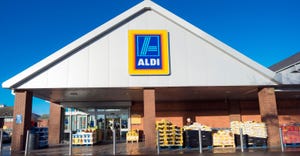Recovered Paper Industry Dots the Internet, The
September 1, 2000
William Moore
With the surge of e-commerce on the Internet, dot-coms continue to scour for a niche they can sink their teeth into. So, it's no surprise that the recovered paper market has been weaving its fibers on the web.
As it does for so many businesses, the web provides distinct advantages for trading recovered paper, according to a recent report, "Dot.Com: E-Commerce Comes to Recovered Paper Buying and Selling," prepared by Atlanta-based Moore & Associates. According to the study, buyers and sellers of recovered paper can benefit by using the dot-coms, because web-based operations offer:
- Lower transaction costs;
- Real time pricing information;
- Better communication between buyers and sellers;
- Improved ability to control inventory;
- A wide range of transaction prices; and
- Reduced marketplace volatility.
An example of reduced marketplace volatility was illustrated in the report through the transaction-price ranges in the old newspapers (ONP) market. In three years, the average FOB price (processors dock) for #8 ONP in North America has been $53 per ton (US dollars per short ton), according to Moore & Associates' North American #8 ONP annual price survey. The #8 ONP price range for any six-month period during these three years was from $42 per ton to $93 per ton.
With the ONP cost base of $53 per ton, in any one of the four North American recovered paper supply basins, the average annual price range has been $12 per ton, or more than 20 percent. At a typical size newsprint mill, this could equal a bottom line difference of more than $1 million per year between the highest and lowest cost buyers of #8 ONP during the past three years.
According to the study, the basic models for recovered paper transactions are auctions, exchanges, classifieds and transaction management platforms.
The appropriateness of each model depends on the buyer and seller. For example, someone looking to buy or sell a small tonnage might use an exchange or auction site, which can act as a spot market. However, if the buyer or seller is seeking to outsource as much as possible, they may choose a transaction management platform.
The report reviews e-commerce sites that are or have announced that they will be handling transactions for the recovered paper business including:
PaperExchange.com, an all-in-one marketplace for the pulp and paper industry with significant emphasis on the recovered paper sector.
Fibermarket.com, which has sales and procurement platforms combining all aspects necessary for recovered paper transactions.
PaperLoop.com, which is owned by Miller Freeman Inc., San Francisco, and Pegasus Capitol Advisors, Cos Cobb, Conn., and is designed to bring Miller Freeman's extensive pulp and paper industry information to the web.
E-fiber, which has links to Ponderosa Fibres of America and features forward and reverse auctions, as well as an exchange. This site deals with pulp, paper, paperboard, and recovered paper, and also recently added a logistics component.
ForestExpress.com, an electronic trading post for pulp, paper and wood products. The business-to-business e-commerce company was created by paper companies Georgia Pacific, Atlanta; International Paper in Purchase, N.Y.; and Weyerhaeuser, Tacoma, Wash.
Paper2paper.com, which is backed by the recovered paper-supply community and provides an online trading exchange (auction) for recovered paper.
E-cycled.com, which handles recovered paper, aluminum cans, glass, etc., in a virtual brokerage service, where the company takes possession of materials.
E-scrap, a global trading group with a pulp and paper company's backing.
Recycler'sWorld.com, a free, e-commerce exchange that lists all recycled materials, including loose and baled recovered paper materials.
Ecardboard.com, a digital marketplace designed to help move old corrugated cardboard (OCC) from suppliers such as warehouses, retail stores and manufacturing facilities to brokers and paper mills.
ClickPaper, owned by Enron, Houston, trades in the derivatives market for recovered paper.
SecondaryFiber.com, provides transactional software to help users to conduct business from their website.
The report analyzes these operations using criteria such as:
- Can your company save money using this site?
- The current level of recovered paper transactions on the site;
- What each site offers; and
- Site problems/shortcomings
The study also describes topics including the model e-businesses use to sell and purchase, and why the market's not large enough to support the numerous recovered paper websites.
For more information, please contact Moore & Associates at (770) 518-1890 or e-mail the author at [email protected]
You May Also Like

